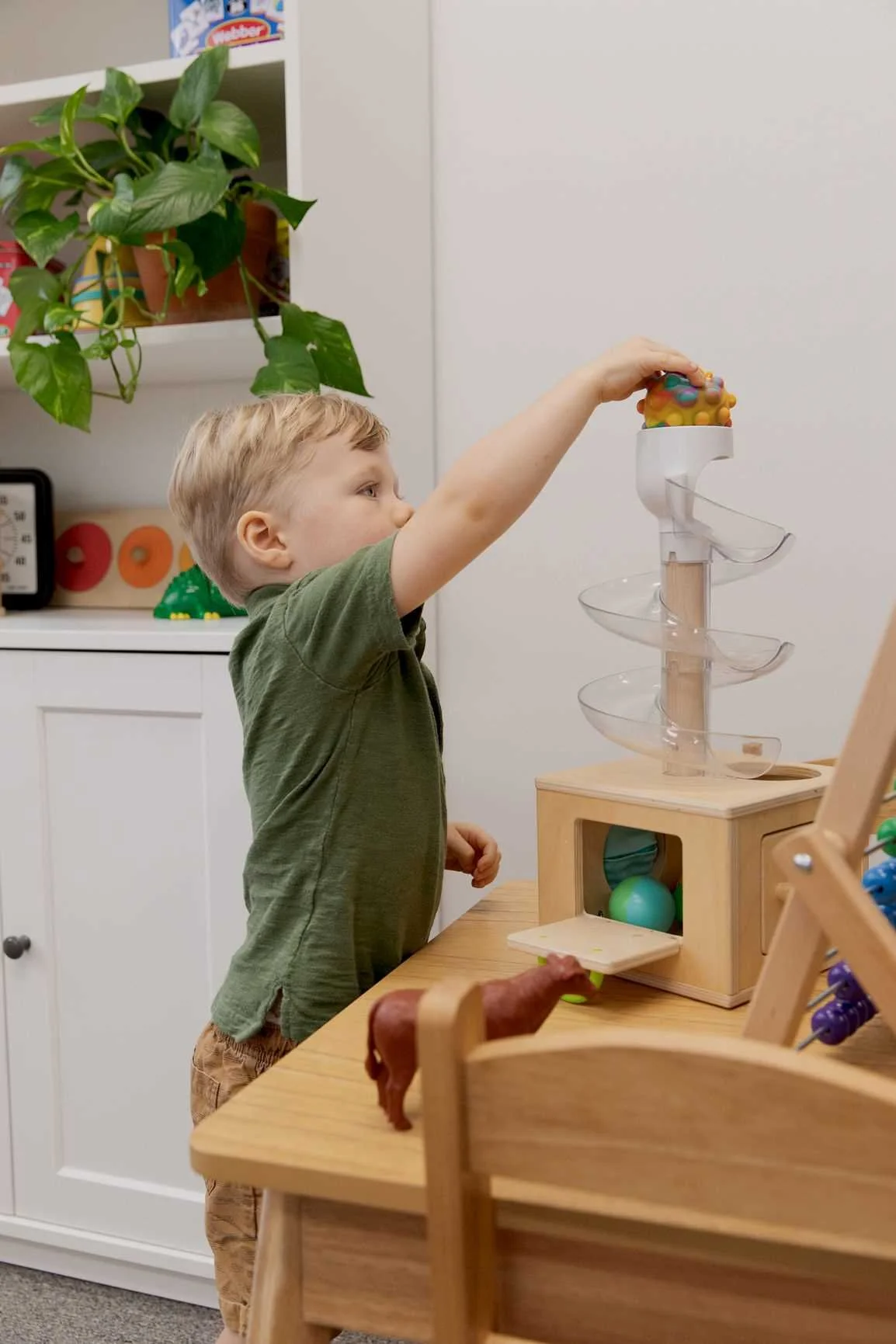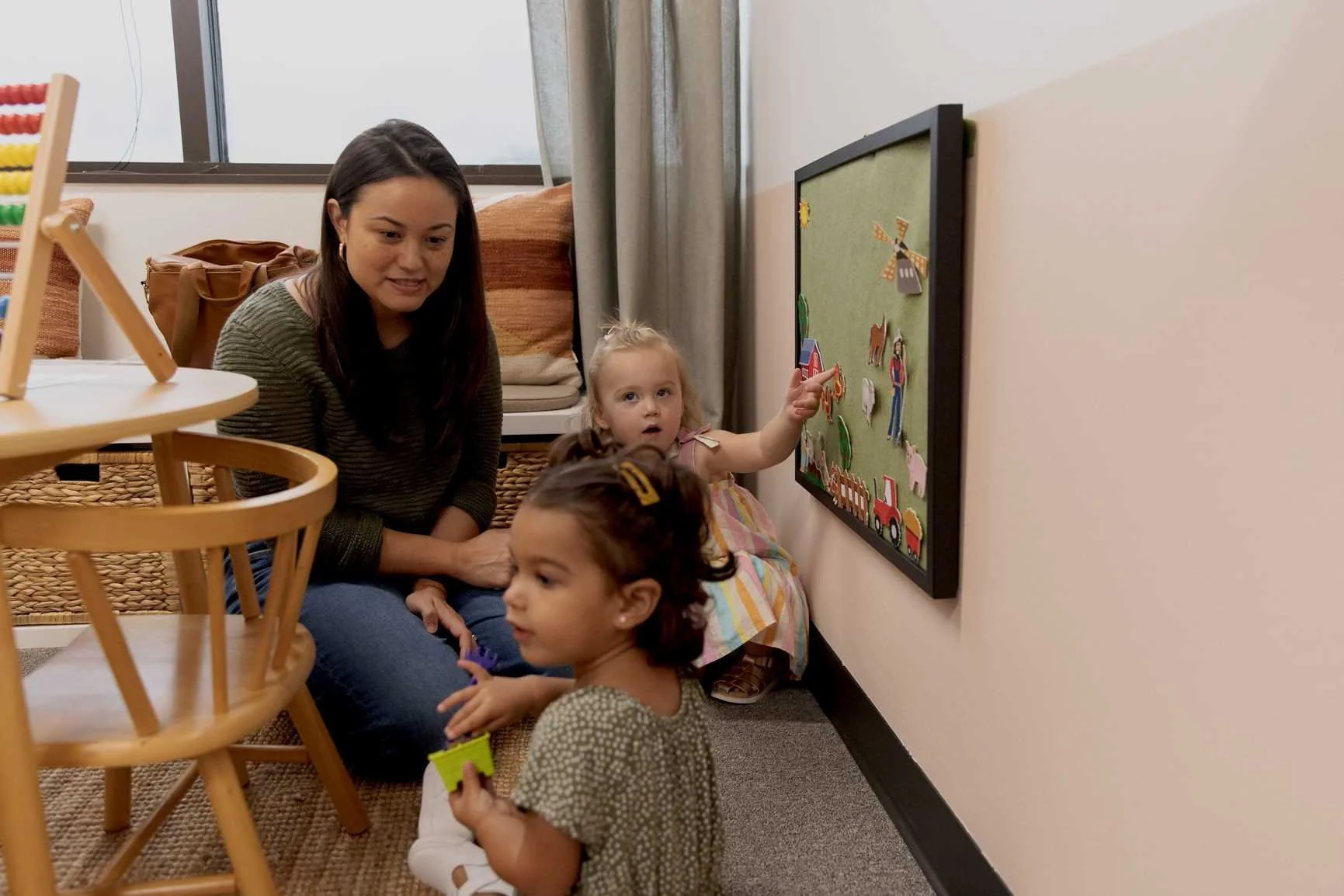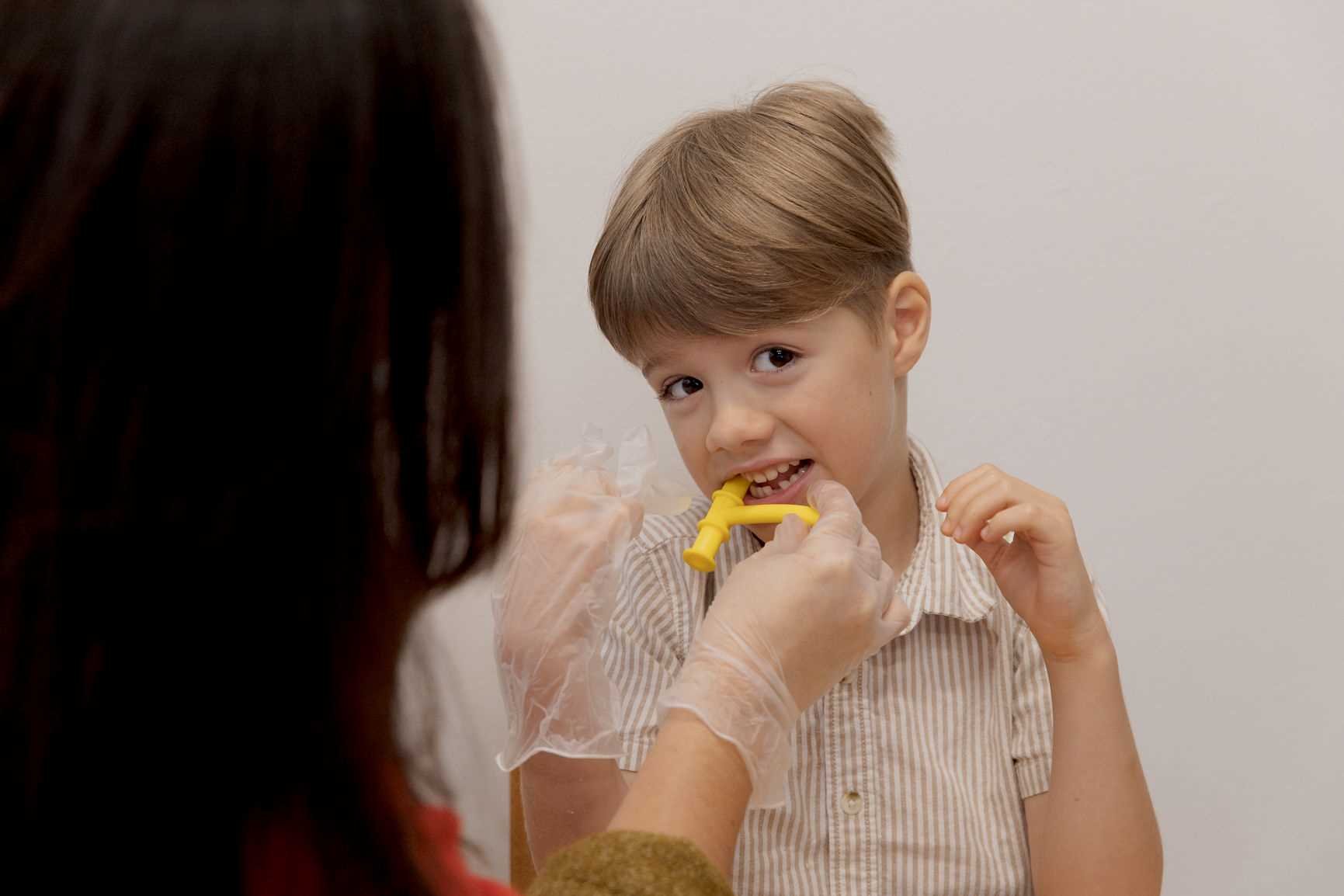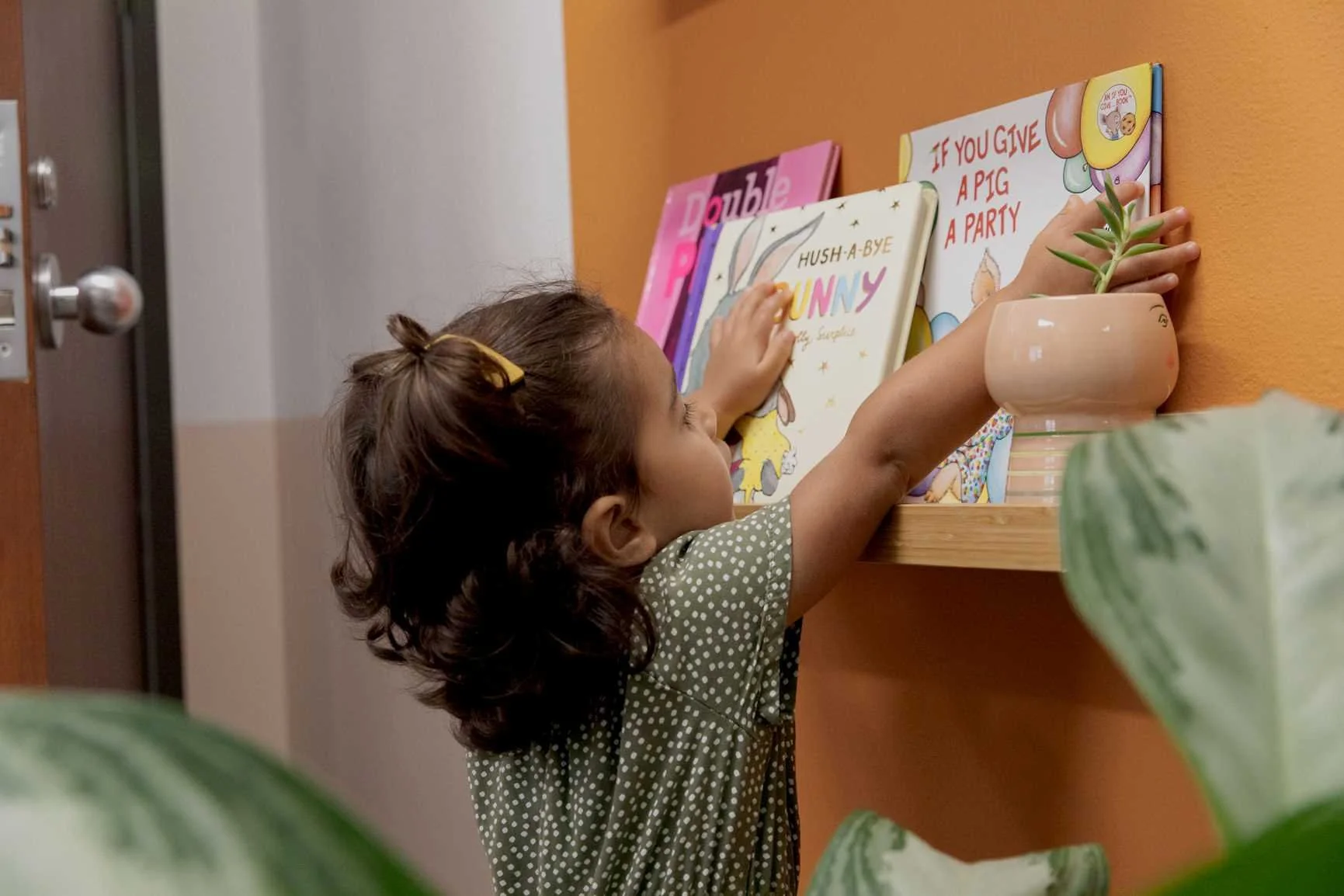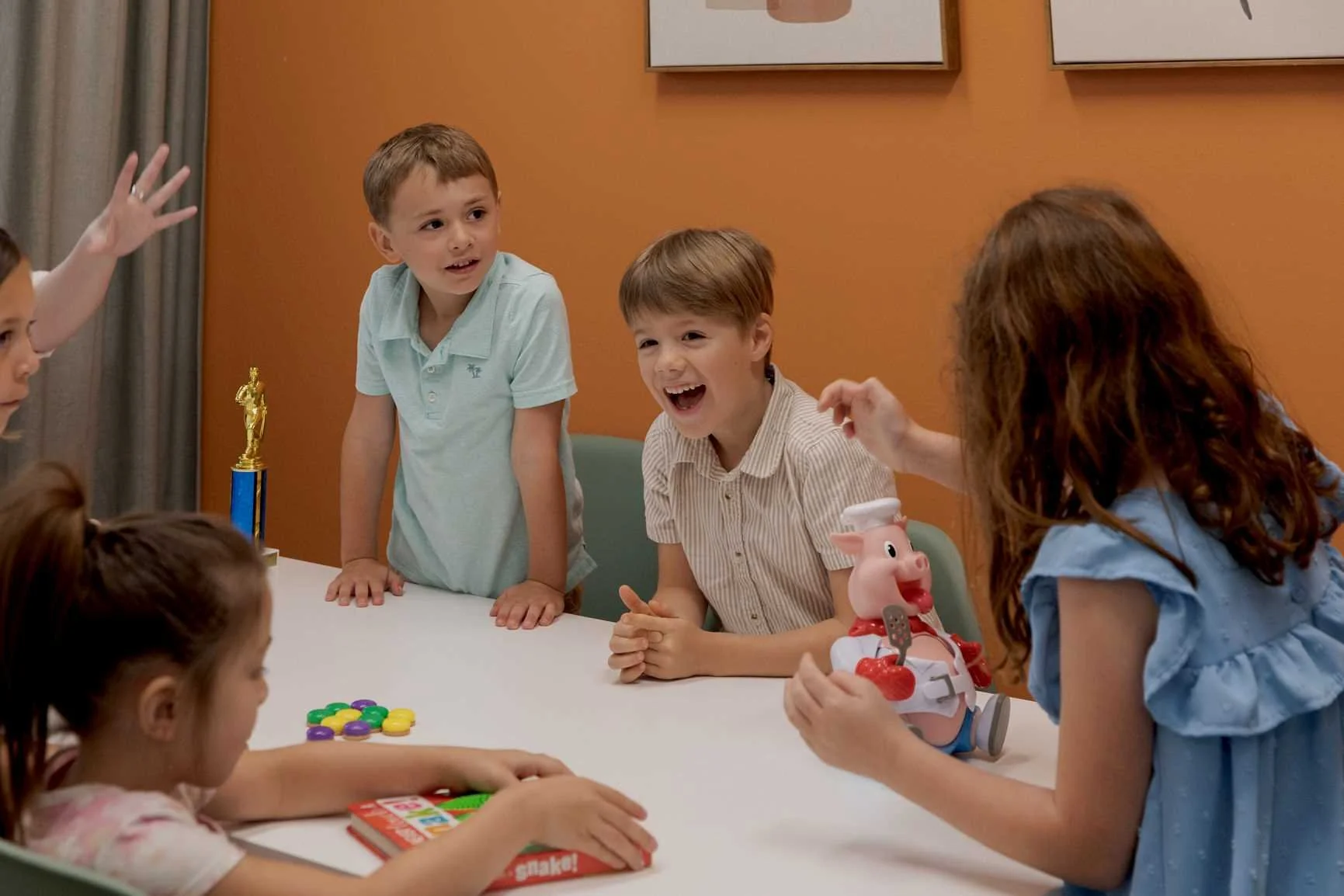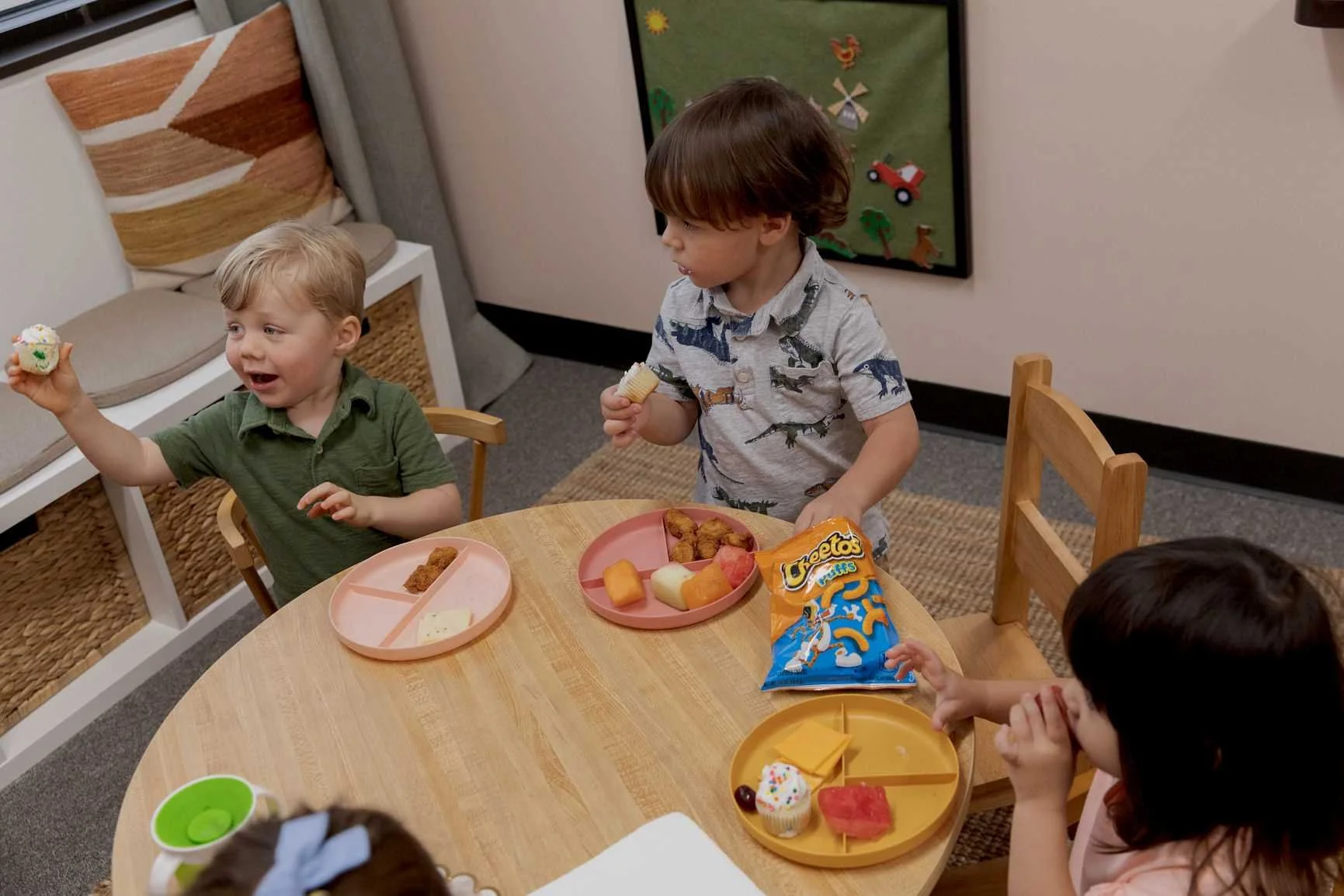Language Disorders
What is a language disorder?
Developmental language disorders are generally categorized as receptive, expressive, pragmatic, or mixed in nature. A language disorder does not refer to difficulties pronouncing words. However, language disorders do often co-occur with other speech and learning disorders, including phonological disorders, articulation disorders, apraxia, and dyslexia.
Language Disorder Types
Expressive Language Disorder
Expressive language skills refer to how a communicator uses vocabulary, grammar, and social skills to effectively convey meaning to others. One’s ability to use a wide variety of words, grammatical structures, nonverbal cues, and storytelling is essential to becoming a strong communicator. Expressive language disorders often manifest as challenges with learning new words, combining words to formulate complete sentences, or writing sentences and passages.
Receptive Language Disorder
Receptive language skills refer to a person’s ability to understand what is being said to them. In order to understand a message, a listener must be able to interpret the meaning of the individual words, the parts of those words, and how those words are combined with others in a sentence. We rely on knowledge of vocabulary, grammar, and pragmatics in order to understand what another person is trying to communicate to us. Receptive language disorders may show up as difficulties with following directions, answering questions, learning new concepts in school, understanding conversations, making inferences, and reading comprehension.
Mixed Receptive-Expressive Language Disorder
A mixed receptive-expressive language disorder indicates difficulty with both understanding and using words to communicate. A child with a mixed language disorder may have relative strengths in one area, but overall their language skills are behind what is expected for their age. Speech therapy sessions will incorporate activities that target both their understanding of language concepts and their ability to use those concepts in speech or writing.
Language Disorders Treatment
Language disorders can occur at any age, and impact one’s ability to understand and/or use words and sentences to communicate. When a toddler is having difficulty meeting communication milestones, or an older child is having difficulty keeping up at school, investigating their strengths and weaknesses in language is a critical piece of the puzzle. A comprehensive evaluation allows a speech language pathologist to determine whether a language disorder is primarily characterized by receptive difficulties, expressive difficulties, or a mix of both. Based on the child’s age and needs, we create a comprehensive plan of care with long-term and short-term goals in order to strengthen their language skills. Our therapists provide detailed recommendations for parent strategies and language-rich activities to support language development at home. Language therapy for preschoolers often looks like play. In school-age children, language therapy is more likely to involve story-telling activities, direct grammar instruction, and reading comprehension practice. We plan language therapy sessions based on each child’s unique interests to best support their attention and participation.
Schedule your complimentary consultation.
We want your child to be healthy, functional, and happy. If your child wakes up not rested, appears to be struggling with attention, self regulation, emotional regulation, communication, or you’ve recently received a diagnosis, or your pediatrician, teacher, or other professional is recommending speech therapy, book a call today to learn more about how we can help.
Speech Therapy Services


